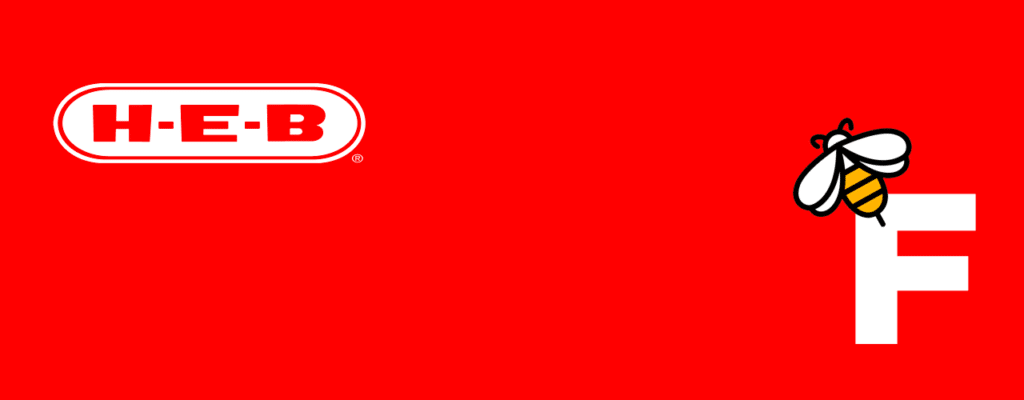
H-E-B
Summary of H-E-B grade

Pollinator Health Policy
5 out of 45 points
The H-E-B Organics™ webpage states that the company will add hundreds of new organic items to its offerings in the coming year.
H-E-B does not have a written, publicly available pollinator health policy for food and beverage supply chains that addresses the need to reduce use of pesticides of concern to pollinator and human health and to expand healthy, bee-friendly organic offerings. A strong policy would include shifting to least-toxic farming approaches in order to avoid regrettable substitution of one toxic pesticide with another. The ecological farming methods that underpin organic farming, integrated pest management and regenerative agriculture reduce farmers’ overall need for pesticides.
Commitment to reduce pesticide use
0 out of 15 points
Avoiding regrettable substitutes
0 out of 5 points
Commitment to least-toxic approaches in non-organic supply chains
0 out of 10 points
Commitment to organic
5 out of 15 points

Implementation
0 out of 90 points
H-E-B has not taken any discernible action to reduce use of pesticides of concern to pollinator and human health or expand organic farming and other least-toxic approaches in its supply chains. The actions we evaluated include: 1) tracking use of pesticides in company supply chains, 2) measurably reducing pesticide use in the past three years and publicly reporting on data, 3) supporting farmers in non-organic supply chains to shift to least-toxic approaches such as integrated pest management and regenerative agriculture, 4) measurably expanding organic offerings in the past three years, 5) demonstrating support for U.S. growers to transition to organic farming, and 6) demonstrating advocacy for public policies aimed at reducing agricultural pesticide use, protecting pollinators and supporting the expansion of organic agriculture in the U.S.
Track pesticide use in supply chain
0 out of 10 points
Measurably reduce pesticide use
0 out of 15 points
Prioritize least-toxic approaches in non-organic supply chains
0 out of 20 points
Prioritize USDA certified organic
0 out of 25 points
Support domestic organic growers
0 out of 15 points
Support public policies
0 out of 5 points

Transparency & Accountability
4 out of 21 points
H-E-B has a public commitment to expand organic offerings on its website. H-E-B also educates consumers by clearly defining the organic label on its website, stating: “The term “organic refers specifically to the way that agricultural foods are grown and processed. Farmers who grow organic produce and raise organic livestock must meet specific requirements set by the U.S. Department of Agriculture before they are permitted to label their products as organic. For crops, this means that most of the fertilizers, pesticides, and herbicides used are natural rather than synthetic. Organic meat and dairy products are produced with organic feed and without antibiotics or added hormones. In addition, all certified organic foods are produced without the use of genetic engineering.”
H-E-B does not have publicly available commitments or policies related to reducing use of pesticides of concern to pollinators and human health in its supply chain. H-E-B does not appear to include reduction of pesticides of concern to pollinators and human health or expansion of organic offerings in company Key Performance Indicators or other formal sustainability criteria. H-E-B does not have educational content online on the value to pollinator and human health of decreasing use of toxic pesticides and expanding organic offerings.
Make policies and commitments publicly available
2 out of 6 points
Oversight
0 out of 5 points
Educate consumers
2 out of 10 points

Collaboration
0 out of 10 points
H-E-B has not communicated with Friends of the Earth in the past year.

Complimentary Home & Garden Policies
0 out of 9 points
H-E-B has not made a public commitment to reduce or phase out use of neonicotinoids in live goods and garden plants. H-E-B has not made a public commitment to remove neonicotinoid or glyphosate products from store shelves.
Policy for live goods
0 out of 4 points
Policy for on-shelf pesticide products
0 out of 5 points

Bonus Points
0 out of 40 points
9 Points
F
grade